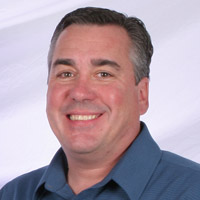Career spotlight: territory manager

Our Career Spotlights series highlights people who have found careers at Takara Bio, and we hope to show you what it's like to be a team member contributing to the advancement of "good science." As a team, we perform and enable good science, and this mission to provide top-quality products and services informs everything we do. If this sounds appealing, we would love to hear from you. You very well might be a perfect fit for our team. Many of our employees started as biology researchers in academia. If you are a job seeker with a biology research background, you may want to apply for scientist positions—but we also recognize and encourage your potential to flourish in positions within marketing, sales, technical communications, and many other departments.
Here we’ve interviewed Kunj Pathak, Territory Manager II in the Sales Department, about his career path to sales of innovative biotechnology and reagents for life science research. Dr. Kunj Pathak obtained his PhD from the University of Kentucky, where he studied molecular virology. After completing a postdoc at the University of Virginia, he moved to the corporate world. He loves to consult on NGS, single-cell sequencing, CAR-T therapy, lentivirus, and other molecular biology workflows. Here, he explains his career transitions, key characteristics for success in biotech sales, and thoughts for clients and prospective salespeople.
These four things are necessary for a salesperson: the ability to handle regular failure and criticism, a genuinely curious mindset, adaptability and flexibility, and the mindset of helping."
How would you describe starting a career in sales from the time of your postdoc?
I loved some aspects of being a postdoc: the creation of the experiment, designing that experiment, and analyzing the data. But I didn’t enjoy fighting for grants. If you are a famous faculty member flying out and giving seminars it’s different, but the career path to reach there is 10, 15 years as a lab rat. I knew that I had to go to industry because I wasn’t ready for the lifestyle of locking myself in a lab and writing grants.
When I started applying for jobs, my first thought was that I'm a scientist who is good with some technology, and I can be a field application scientist (FAS) or medical science liaison (MSL).

Kunj Pathak, Territory Manager II at Takara Bio USA
I got some interviews. Once at an FAS interview, I interacted with a lot of salespeople. The interviewers asked psychological questions that we are not trained to answer as postdocs. For example, an interviewer would give me a brick and say, “Give me 10 different uses of this brick.”
I said to myself, “What the heck is this question?” But I came up with some ideas. “First, I'd wrap it in aluminum foil and put it on my pomfret fish to grill it very properly.” And then, “I’ll put it behind the tire of a truck to stop it from rolling.” I gave 10 answers. An interviewer told me, “Your interview was great. You should try for a sales job.”
How did you find your current role at TBUSA?
I became part of a group of four postdocs who created the first microbiology immunology postdoctoral association. One of my connections from the association became a sales rep covering our university. I shadowed him six or seven times. I said, “This doesn't even seem like work! What do you do? Sit in a cafe, write emails, and talk to some people.” I did not know the total background of sales jobs. You must do a lot of other follow up. Still, I was motivated to pursue day-to-day freedom.
Interviewers told me, “You have to have some customer interaction before we give you this job.” I was committed to getting a customer-facing role. In my small town, options were limited. After four years as a postdoc, I said, “Let's do something very bold, let's do the highest customer-facing role you can ever do.” So I started selling cars.
I did not update my LinkedIn because I thought my PI will be angry. Like, “Oh my God, this postdoc is selling cars.” But I ran with that job. I was great because I was genuinely interested in talking to those different people and letting car selling happen later. I learned a lot in that job about customer interaction and the importance of being genuine.
Then, John Kullman, Associate Director, Sales, invited me to interview at Takara Bio. John said that he liked that a postdoc was selling cars.
What does it take to be a salesperson? Some people might feel that they can't be a salesperson because they don't have the personality, the confidence, or the people skills.
These four things are necessary for a salesperson: the ability to handle regular failure and criticism, a genuinely curious mindset, adaptability and flexibility, and the mindset of helping. People in the field respect salespeople who show authenticity and help them navigate this hugely crowded, technologically full world. A salesperson who has been a scientist can say with more empathy, “Dr. X, you know, I can understand you are busy, and a lot of things have changed. I’m not the expert here, but I can help you navigate.”
What advice do you have for those considering becoming salespeople at a company like Takara Bio?
For those considering becoming salespeople, I have a lot to say, but people can start from a dream board to figure out what kind of career lifestyle fits.
Get to know the job. Ask salespeople who come to your university, “Hey, what do you like about this? What do you hate about it?”
This lifestyle may not be a good fit for everybody because it comes with a lot of time away from your home. One-third to one-half of the salary depends on your performance. Not everybody is ready for this pressure.
New, innovative technologies like ours are especially hard sales. These sales are not very transactional; we build permanent relationships. The technology should sell itself to the right prospect. You just go to a prospective client, and you genuinely understand how the technology can help achieve their dreams. Running some pilot experiments, you show that it is not just a dream; you demonstrate it can be achieved.
Basically, I don't believe in selling. Go and thrill them, teach them something, and they are either impressed and then buy or they're at least curious to understand more.
Thank you for taking the time to share your story!
Stay tuned for more career spotlights!
Takara Bio USA, Inc.
United States/Canada: +1.800.662.2566 • Asia Pacific: +1.650.919.7300 • Europe: +33.(0)1.3904.6880 • Japan: +81.(0)77.565.6999
FOR RESEARCH USE ONLY. NOT FOR USE IN DIAGNOSTIC PROCEDURES. © 2025 Takara Bio Inc. All Rights Reserved. All trademarks are the property of Takara Bio Inc. or its affiliate(s) in the U.S. and/or other countries or their respective owners. Certain trademarks may not be registered in all jurisdictions. Additional product, intellectual property, and restricted use information is available at takarabio.com.






